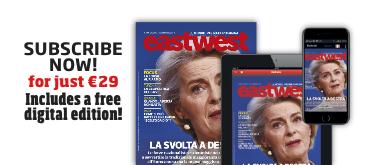The G20 arrived with perfect timing after the attacks in Paris. Or maybe the other way around. Putin has played the role of a primadonna and all Western leaders have had to adapt. As well as to his intervention in Syria. There is an image that speaks a thousand words. Obama and Putin sitting face to face in a corner of the r G20 buffet. The President of the State that has raised the tougher sanctions against Russia and the one ousted by the G8 debate for over half an hour during the coffee break. They talked about Syria and Ukraine, their closest advisers reported in the aftermath. Around them, the chatter of the other most powerful world leaders resonated.
Would it happened if a couple of daysearlierthe world had not been upset by the terrorist attacks in Paris? Maybe not. And the mantra repeated by almost all Western leaders in Antalya –let’s fight ISIL together – would not have resonated so loudly in the halls of the G20.
Don’t forget Ukraine
It was inevitable. As I already wrote, Russia cannot make its own war in Syria without the help of the Western coalition; but, at the same time, the US and Europe have no other choice but to deal with Russia in their fight against the Islamic state.
If until recently Russia has chosen not to hinder the allied action against ISIL without adhering openly the US-led coalition – which has among its objectives the overthrow of the Assad regime, supported by Moscow – with the direct intervention in Syria, things have changed.
And after the attacks in Paris, with the rhetoric of the global unity against the common enemy, things have changed again.
The reasons, however, behind the Western resistance have not ceased to exist with the Friday night victims.
Obama and Putin in that half hour talked about Syria and Ukraine. Forgetting about the war in Ukraine doesn’t help to end it. In the same hour in which the world’s eyes were on Paris, at least six Ukrainian soldiers were killed in the resurgence of clashes along the friction line with separatists, and the general staff of Kiev threatened to bring heavy artillery to the front, after having pulled it back according to Minsk-2 agreements.
The juxtaposition of the two countries is not accidental.
Tactical differences
America – and Europe – need to overcome differences on Ukraine in order to work together with Russia in Syria. But the need for a common front against terror – and even more cynically to avoid stepping on each other’s feet in Syria – should not be the umbrella behind which to hide and to forget the invasion of Crimea and the intervention in Donbass. Nor can time clean the way Russia handled the crisis in Ukraine, at least until damage caused are repaired or blamefully paid.
“Strategic goals related to fighting the ISIL are very close, but tactical differences remain,” Putin’s foreign affairs adviser, Yuri Ushakov, said. Well, beyond tactical differences in Syria, also unsolved in Ukraineshould remain on the table.
Unfortunately, however, the shock of the dead in Paris can also end up overshadowing them.
@daniloeliatweet
Would it happened if a couple of daysearlierthe world had not been upset by the terrorist attacks in Paris? Maybe not. And the mantra repeated by almost all Western leaders in Antalya –let’s fight ISIL together – would not have resonated so loudly in the halls of the G20.




